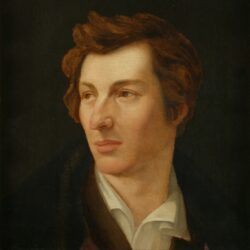
Heinrich Ḥayyim Heine (13 December 1797 – 17 February 1856) was a German-Jewish poet, journalist, essayist, and literary critic. He is best known outside of Germany for his early lyric poetry, which was set to music in the form of Lieder (art songs) by composers such as Robert Schumann and Franz Schubert. Heine's later verse and prose are distinguished by their satirical wit and irony. Part of the Young Germany movement, his radical political views led to many of his works being banned by German authorities. Following the July Revolution in France, from 1831 onward, Heine spent his life as an Prussian expatriate in Paris. Heine railed against patriotic chauvinism, penning the following verse in his poem "Almansour" (1820): "Dort, wo man Bücher verbrennt, verbrennt man am Ende auch Menschen" (Where they burn books, they will ultimately also burn people). He was so detested by the Nazis that his gravesite was desecrated by exploding it with dynamite.
Filter resources by Category
Filter resources by Tag
Filter resources by Collaborator Name
Filter resources by Language
Filter resources by Date Range
Contributed by:
Margaret Armour (translation), Heinrich Heine, Aharon N. Varady (transcription)
“Prinzessin Sabbat” by Heinrich Heine, in Romanzero III: Hebraeische Melodien, (“Princess Shabbat,” in Romanzero III, Hebrew Melodies.), 1851 was translated into English by Margaret Armour (1860-1943), The Works of Heinrich Heine vol. 12: Romancero: Book III, Last Poems (1891). We have replaced “schalet” (unchanged in Armour’s translation) with cholent. . . .
Contributed by:
Nina Davis Salaman (translation), Heinrich Heine, Aharon N. Varady (transcription)
“Brich aus in lauten Klagen” by Heinrich Heine was preserved in a letter he wrote to his friend Moses Moser dated 25 October 1824. The poem is included in Heinrich Heine’s Letters on The Rabbi of Bacharach, the manuscript of which only survived in a fragment, the rest having been lost, according to Heine, in a fire. The English translation here by Nina Salaman was transcribed from her anthology, Apples & Honey (1921) where it appears under the title of “Martyr-Song,” published at an earlier date in The Jewish Chronicle. . . .

